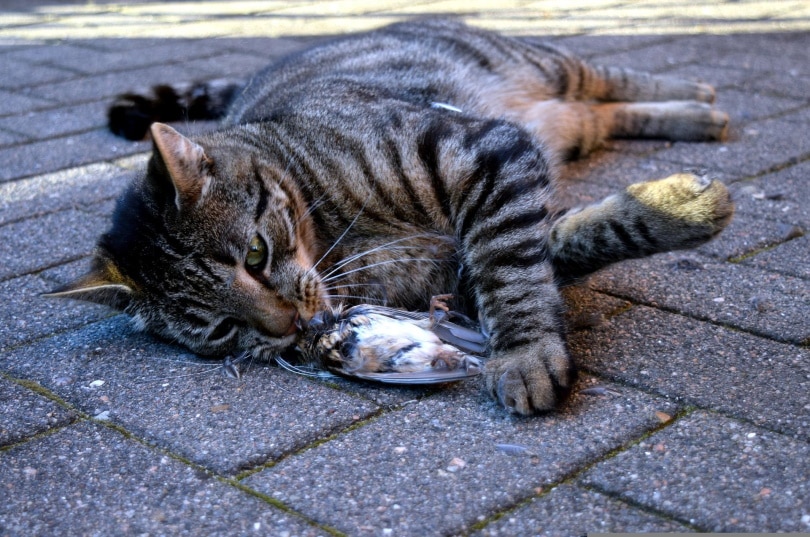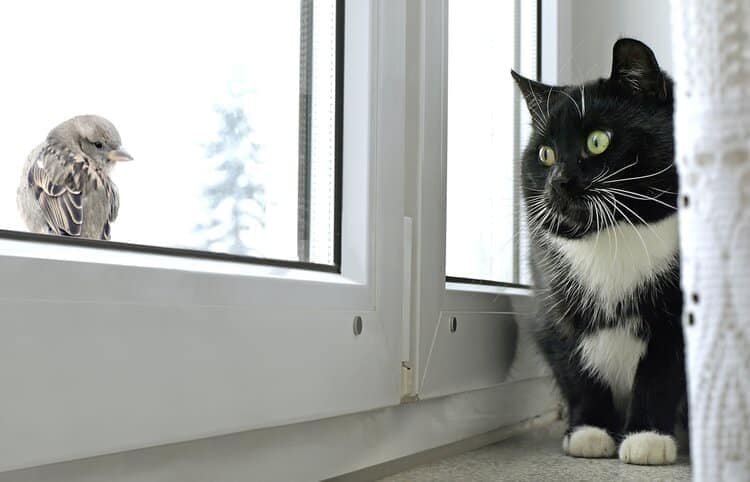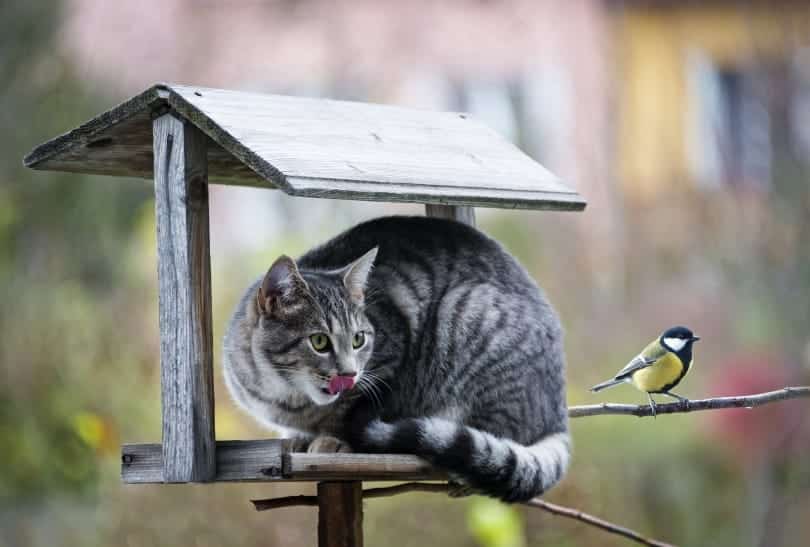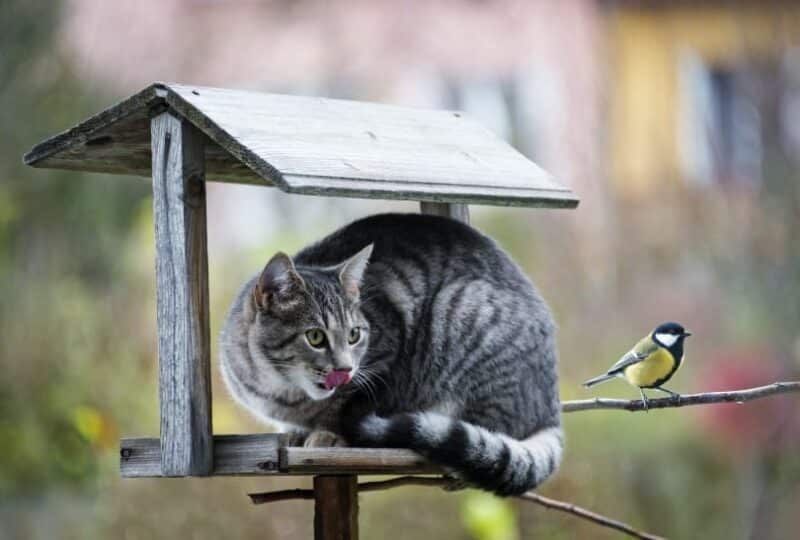Click to Skip Ahead
If you have an outdoor cat, chances are there will be a time that they bring you a dead bird. This experience is unpleasant and certainly not something you would like to repeat. So, what do you do now? First, you must dispose of the dead bird while observing proper health and safety precautions.
Then, watch over your cat to ensure they are not developing any adverse side effects. Once both steps have been completed, you can take preventative measures to ensure it does not happen again.
How to Handle a Dead Bird
If you have a dead bird on your porch or in your house, your immediate impulse may be to pick it up and throw it outside. However, take a moment to think about your actions before disposing of the bird because there are some precautions that you should take.
Birds can carry infectious diseases, so it is vital to take care when handling them to prevent any transmission of illnesses. If you are unsure whether the bird is dead, prod at them with a stick before approaching. If the bird is alive, contact a DNR-licensed wildlife rehabilitator.
If the bird is dead, pick it up with a shovel or heavy-duty gloves. While carrying the bird, be sure that the beak or claws do not puncture your gloves or other material you are using to transport the bird. You should not touch the bird with your bare hands.
Place the bird inside a plastic bag and seal it tightly, then place the bag within a sealed bag. Dispose of the bird in your trash. As soon as possible, wash any object that came in contact with the bird. Wash your bare hands for at least 20 seconds as a safety measure.

Monitor Your Cat for Signs of Illness
Now that the dead bird has been taken care of, you must pay close attention to your cat over the following days. Songbird fever can be a serious threat to your cat’s health and well-being.
Songbird fever is a condition that cats develop after eating an infected bird. When infected with Salmonella, birds can pass the infection to your cat. This can lead to exhaustion, decreased appetite, diarrhea (possibly bloody), and vomiting.
Infected cats may be sick for several days or several weeks. Immunocompromised cats will have a higher chance of experiencing worse signs, and one out of every 10 infected cats can die from songbird fever.
This is a horrible condition for your cat and bad for you. Your infected cat can infect you, leading you to experience unpleasant symptoms. For everyone’s health and safety, keeping a close eye on your cat is essential. Even better, you can take steps to prevent them from killing and eating birds.
Prevent Your Cat from Killing Birds
The easiest way to keep your cat from attacking birds is to keep them indoors. However, if this option is unavailable, you can limit access to the outdoor world with obstructions such as fencing, netting, or even a catio.
If your cat refuses to end their free-roaming privileges, put a brightly colored collar with a bell on them. The vivid color and the ringing bell will help birds spot your cat before they can pounce, and it should give them plenty of time to vacate the area.

Conclusion
No one wants to be surprised with dead birds (except our cats). While keeping your cat indoors is the only way to guarantee that they do not kill more birds, other methods, such as using a collar with a bell, can impede their hunting abilities. Whatever you decide, the birds will surely thank you!
Featured Image Credit: Kuttelvaserova Stuchelova, Shutterstock











